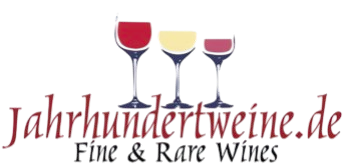Rüdesheimer Apostelwein 'Bremer Ratskeller' 1727 350ml with OC 'release from the 1950's'
Filling level into neck, label and capsule good (filled into the bottle about 80 years ago).
Product information
The Rüdesheim apostle wine 'Bremer Ratskeller' 1727: A historical wine jewel
The Rüdesheim Apostle Wine 'Bremer Ratskeller' 1727is one of the oldest preserved wines in the world and is a symbol of German viticultural and cultural history. Produced in Rüdesheim am Rhein, a traditional wine-growing region in the Rheingau, it reflects the art of baroque winemaking. The steep slate slopes and mild climate favoured the production of long-lasting Riesling wines, then as now.
Since 1727, the wine has been stored in Bremen's Ratskeller, an underground vaulted cellar beneath Bremen Town Hall, which has served as a wine storehouse since 1405. The thick walls and constant climatic conditions (10-12°C, high humidity) have enabled its exceptional preservation. The Ratskeller even survived the bombing raids of the Second World War, making the wine a "miracle of history".
Originally pressed as a sweet late harvest Riesling, the Apostelwein was harvested by hand and fermented in oak barrels. Its high sugar and alcohol content (approx. 9-11%) acted as a natural preservative. After almost 300 years, however, its chemical composition has changed considerably: Analyses from the 20th century show a drastically reduced alcohol content (5-6 %), extreme acidity levels and oxidative aromas that today classify it more as a vinegar or syrupy rarity.
Culturally, wine is a liquid cultural asset. The name "apostle wine" refers to the tradition of storing wines for at least 12 years (symbolising the apostles) - this one exceeded this by a factor of 25. As a diplomatic object of prestige, it once served to represent the wealth of the city. Today it is a protected monument and part of the UNESCO-recognised Ratskeller collection.
The 172er Apostelwein is a fascinating testimony to historical craftsmanship and the human fascination with overcoming transience. As a "liquid archive", it preserves the history of Bremen and the Rheingau for future generations.

|
Alcohol: | 10 |
|---|---|---|

|
Colour: | white |

|
Country: | Germany |

|
Filling quantity: | 350 ml |

|
Flavour: | sweet |

|
Grape variety: | Riesling |

|
Product type: | Wine |

|
Region: | Rheingau |

|
Type of wine: | White wine |

|
Vintage: | 1727 |

|
Producer: | Bremen Ratskeller |
Log in
Allergens: Sulphites
Bottler: Producer












